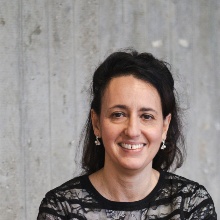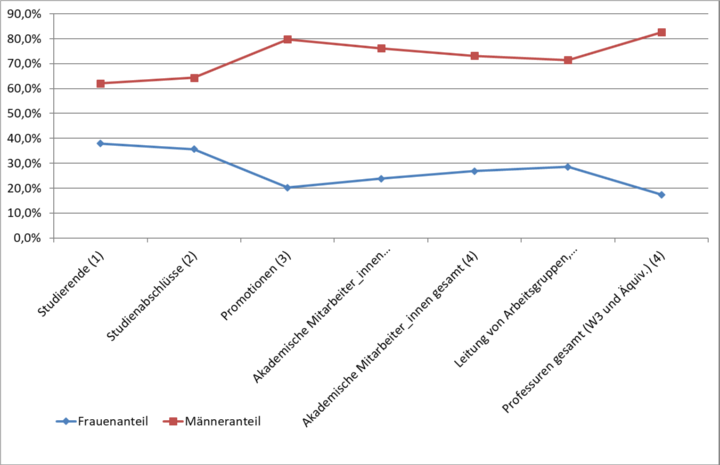In her annual report, the Gender Equality Officer spoke of re-traditionalization as an effect of the pandemic. One study showed that the proportion of fathers of young children with egalitarian attitudes toward the employment of mothers has declined as a result of corona-related daycare and school closures. At the same time, a further increase in demand for childcare services and an increased number of requests for business trips with children were noticeable at the Uni & Family service. “A disproportionate attrition of women – especially of mothers – from science must be counteracted. We cannot afford to do without this potential,” says Lamanna, who calls for adequate support for young scientists also tasked with caring for children.
Close integration of diversity and gender equality
One key task is to more closely dovetail the tasks of the Gender Equality Office and the Vice Rectorate for Diversity and International Affairs. This is also reflected in the creation of the position of a Diversity Officer, who is based in the Gender Equality Office and works closely with the Vice Rectorate. The goal is to develop the Gender Equality Office into a staff position that represents gender equality and diversity. “We want to achieve these new structures together with Division 7 as change management support,” says Lamanna. Lamanna and Vice Rector Prof. Silke Wieprecht are already working together on the Diversity Round Table. It is important to further develop the diversity concept into a strategy for achieving diversity, equity, and inclusion tailored to the specific framework conditions and strategic goals of the University of Stuttgart.
Proportion of women and men in the different qualification levels at the University of Stuttgart
Current and future requirements of the EU
According to Lamanna, the preconditions for EU funding are certain content and regulations in connection with the Gender Equality Plan (GEP). The university is well on its way. However, there is still a need for action in the area of awareness-raising and training on gender equality for the entire university as well as training on unconscious gender bias for employees and decision-makers.
“Next year, the eligibility requirements will change considerably,” says Lamanna. As an award and ranking criterion, it is no longer sufficient to simply have a GEP. Her conclusion: “In addition to the GEP, concrete and structured measures will indirectly increase our chances of receiving EU funding. These include actively recruiting women at all levels, raising awareness of the gender dimension in research and teaching, and introducing awareness-raising measures against unconscious bias.”
In addition to the requirements of the EU, the funding guidelines of the German Research Foundation (DFG) and the state must also be observed. After the EU, the DFG is the largest provider of funding. According to Lamanna, the state requirements for gender equality plans have a different focus and thus require additional work.
Successful projects
Lamanna gave an overview of many ongoing and successful projects. For example, the University of Stuttgart is the largest provider in the region for Girls’ Day. Lamanna was pleased to see a report on this in the “Tagesschau” and on “SWR”. She is proud of the successful outcome of the dialog process in the “workandfamily university audit”. Since 2022, the University of Stuttgart has been allowed to use the Europe-wide “family-friendly university” certification logo for an indefinite period.
Equal opportunity does not mean equal treatment but rather the introduction of measures to compensate for disadvantages
Dr. Grazia Lamanna, Gender Equality Officer at the University of Stuttgart
Taking stock of her first year in office, Lamanna reports the realization that classic measures to promote women are in vain. Gender mainstreaming is a better approach. This means not only avoiding the creation or reinforcement of inequalities that can disadvantage both women and men but also analyzing the existing situation in order to identify inequalities. Appropriate measures are thus needed to eliminate injustices and reverse the mechanisms that caused them. Gender mainstreaming requires a fundamental change in the focus of the gender equality strategy as a whole. A stronger focus on initiating and participating in structural measures (e.g., career advancement programs for female postdocs, action program of the dialog process – family-friendly university audit). “Equal opportunity does not mean equal treatment but rather the introduction of measures to compensate for disadvantages,” says Lamanna.

Grazia Lamanna
Dr.Gender Equality Officer




